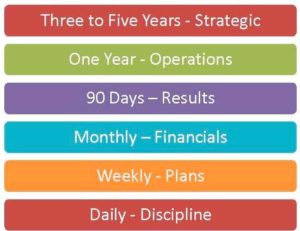Mentor Article
Need to Set Goals for Your Business, Here’s How
Our Mentors
Bob Halagan
Halagan Law Firm, LTD.
Roben Hunter
Hunter Advisors, PLLC
Casey A. Mattson
JM+SC Futurity
Gary Sorenson
Insurance Brokers of Minnesota
Kevin Lanigan
Carlson Estate Planning
Sheri Stolp
The Stolp Group
Michael Sherrill
Sherrill Law Offices
Sharon Berglund
Berglund HR Consulting
Mark Hegstrom
Waterfront Financial Group
Suzie Meier
Red Technologies Inc.
Bruce McAlpin
The McAlpin Team
Edina Realty
Shaun Corbin
First Minnesota Bank
Gayle Noakes
Gayle Noakes Supervisor Success
Stacey R. Edwards Jones
Jones Law Office
Kelli Hoskins, Master Business Coach
Sep 1, 2012
 As a small business owner, do you find that you are easily achieving the results you planned in your business? Do you find that you have intentions and goals that you are not able to accomplish?
As a small business owner, do you find that you are easily achieving the results you planned in your business? Do you find that you have intentions and goals that you are not able to accomplish?
Are you inconsistent in your ability to achieve your business goals?
If you are like many small business owners, you have a plan or a list of tasks that you want to get accomplished in a day or even in a week. However, by the end of the day or week you find you’ve hardly done any of the things you wanted or planned to do.
It is easy to have intentions, develop ideas or set goals to increase or improve your business. The struggle is “the doing” of the things necessary on a day-to-day basis that will move you and your business towards achieving those goals. It begins with training yourself to see the big picture so you can begin the process of creating a strategic plan. A great resource to help you get started is the One Page Strategic Plan from Gazelles.com .
If you begin a journey to a place you have not been before, like northern Minnesota, you need a road map. So, let’s look at creating a road map that will enable you to turn and idea or a goal into a reality:
- Vision or Legacy: this is for the long-term. It’s what you want your business to be recognized for and what you want your customers, your team, your community to remember about your business, long after you have exited the business.
- Strategic Goals: these represent the outcomes you want for your business in the medium-term. The results you would like to accomplish in the next three to five years. These include business growth, increase business asset value, intellectual property, expansion opportunities, and acquisition opportunities.
- Operational Goals: these are the short-term goals that when met, will keep you on track to achieve your strategic goals. Operational goals generally span twelve months or one year. These include revenue goals, profit goals, sales goals and new customer goals.
- 90 Day Goals: these are the outcomes or results that allow you to evaluate the effectiveness of the actions you are taking towards your operational goals. Ninety days is a great window for evaluating progress towards operational goals. It is enough time to see the results of your actions, but not too far into the future to waste time and money on something that’s not producing a return on investment.
- Monthly Financials: your monthly financial reports are like your pulse. The Balance Sheet, Profit & Loss Statement, and Statement of Cash Flow enable you to make decisions about future investments. You can determine the actions to take to achieve your 90 day and operational goals. Like your 90 day goals, they also allow you to evaluate the effectiveness of the actions you are taking towards your operational goals.
- Calendar: planning your week in advance and scheduling your top priority tasks and activities creates the agenda for your results.
- Daily: it’s all about commitment and consistency. Follow your schedule. Have the self-discipline to hold yourself accountable to what you need to be doing every minute and every hour of your day to achieve your business goals.
The key to achieving success is having clearly defined strategic and operational business goals. You must be able to identify and plan the day-to-day actions that assist you in achieving those goals. You don’t have to do this alone. You can have a Business Coach assist you in setting and achieving your business goals. Your business coach can help you overcome the challenges that pull you away from your priorities and hold you accountable to follow through on the actions that are going to achieve your goals.

